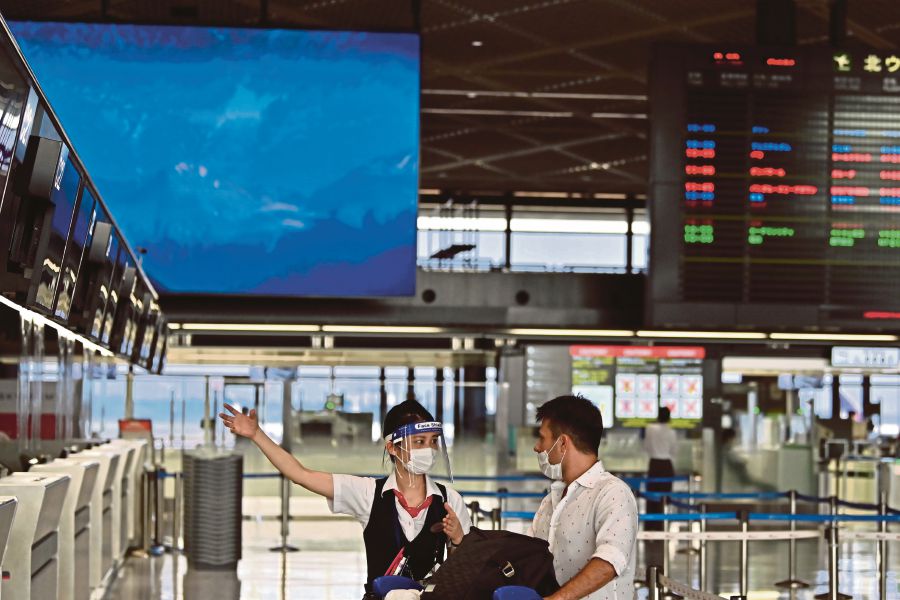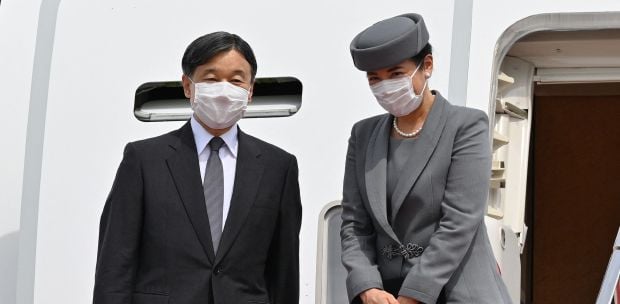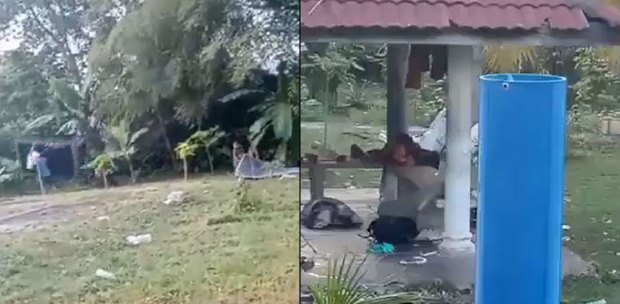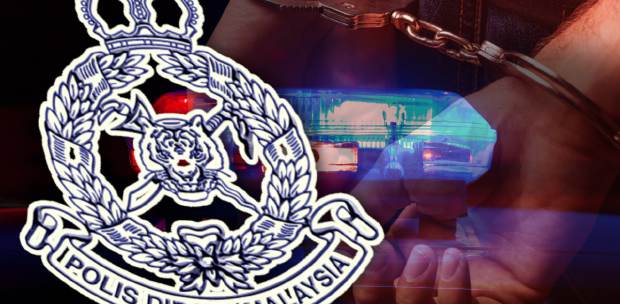SOME 87 government-sponsored foreign students will be allowed to enter Japan as the government makes an exception to the country's entry ban on non-resident foreigners.
According to a Kyodo News report, government sources said the entry of the students will be allowed possibly from later this month and they will be required to be quarantined for 10 days after arrival at hotels prepared by their schools.
Chief Cabinet Secretary Hirokazu Matsuno said the exception was made considering public interest and the urgency of the matter.
The 87 students have less than one year left until they graduate or finish their studies, Matsuno said.
Japan imposed the entry ban on Nov 30 last year amid growing concerns over the highly transmissible Omicron variant of the coronavirus. The ban was extended last week until the end of February.
The government had said it will ease the entry restrictions if there are "special circumstances," including visits to those who are seriously ill or for funerals.
The Kyodo report said the move comes as academic and economic circles have continued to voice concerns after a growing number of foreign students gave up on studying in Japan due to the country's strict border controls.
The government's measures were affecting foreign students and businesses that employ foreign workers, ANA Holdings Inc. President Shinya Katanozaka had said last week.
"I hope the government will balance both effective infection controls and social economic activities from a scientific viewpoint," he said in a statement released amid a drastic reduction in international flights.
Meanwhile, Japan is now considering placing 11 prefectures, including Tokyo and its vicinity, under a Covid-19 quasi-state of emergency to curb rapidly spreading coronavirus cases.
Any declaration of a quasi-emergency depends on requests made by these prefectures, but the Japanese government is said to be preparing to make a decision as early as Wednesday.
If declared, Japan would see 14 of its 47 prefectures under the antivirus measures.
Tokyo and neighboring Chiba, Saitama and Kanagawa prefectures have jointly asked the central government to declare a quasi-emergency after their governors held a virtual meeting to discuss the infection situation in the Tokyo metropolitan area.
Gifu and Mie prefectures in central Japan also made a request as they too seek to prevent hospitals from being overwhelmed by a spike in cases.
Under a quasi-emergency, local governors can request that dining establishments shorten their business hours and stop serving alcohol, while residents would also be asked to refrain from traveling across prefectural borders.
According to a Kyodo report, the Tokyo metropolitan government said the occupancy rate of hospital beds for Covid-19 patients in the Japanese capital surpassed the 20 per cent threshold required to seek quasi-emergency steps.
Tokyo's daily count of coronavirus cases came to 3,719 on Monday, after topping 4,000 on Friday for the first time since late August.
Nationwide, the number of newly confirmed coronavirus cases exceeded 20,000 for the fourth straight day, with community transmissions of Omicron accelerating in urban areas including Tokyo, Aichi, and Osaka.
Matsuno said the number of new cases was surging at an unprecedented speed, not just in the metropolitan area but elsewhere too.
He said that health experts have noted the need to consider making a declaration based on wider economic regions rather than prefectures.
A quasi-state of emergency has been already declared in Okinawa, Yamaguchi and Hiroshima prefectures, effective from Jan 9 until the end of the month.
To counter the resurgence of Covid-19, the government is said to be planning to reopen a mass vaccination center in Tokyo on Jan 31 using a government facility in Chiyoda Ward, the venue of a vaccination programme last year.
Prime Minister Fumio Kishida had announced last week that centers operated by the military in Tokyo and Osaka would be reopened to speed up giving booster shots to people.





